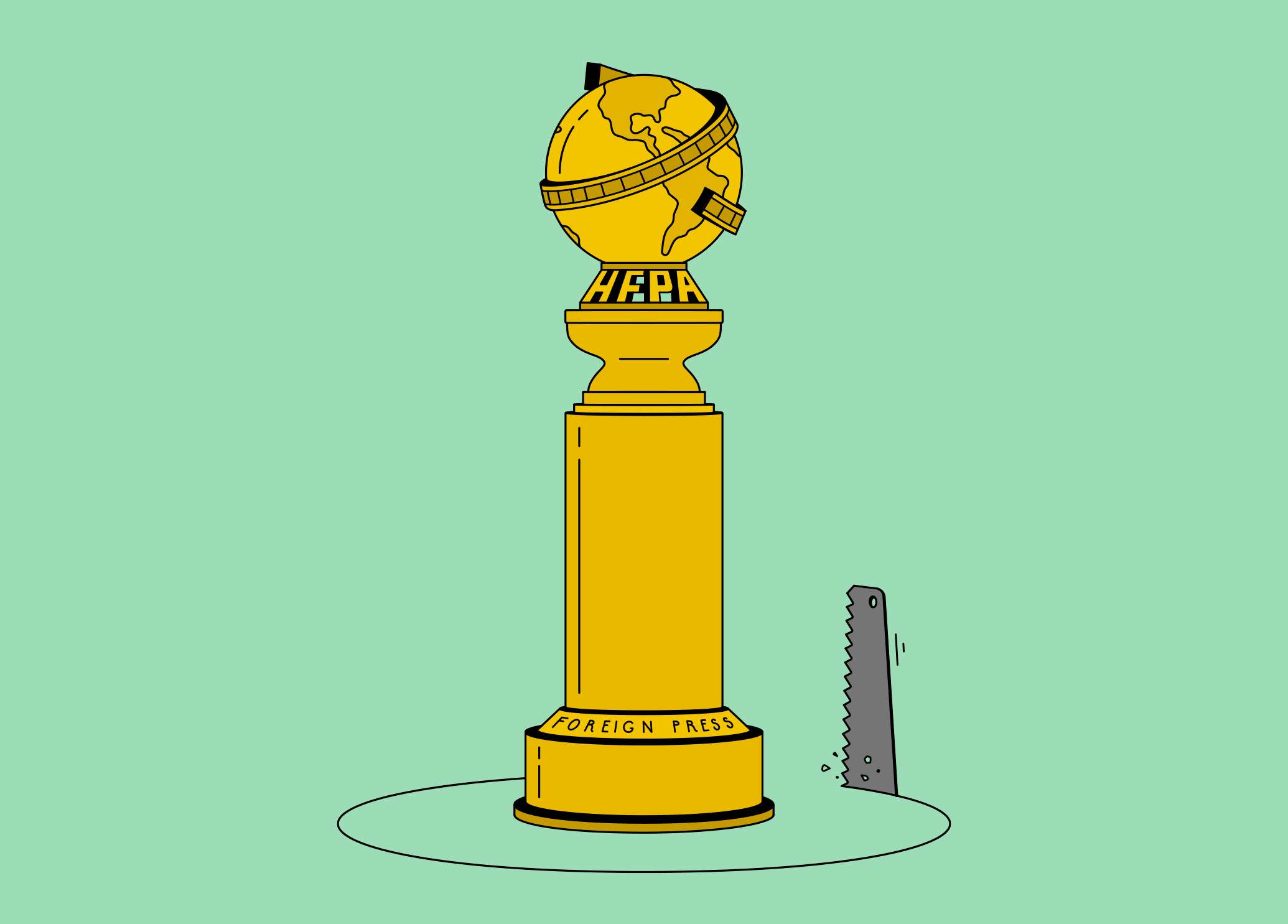
The Golden Globes will return to TV on Jan. 10, for the first time since 2021, and this year’s 80th-anniversary edition has a lot going for it. Among the most-nominated titles are many wonderful movies (The Banshees of Inisherin, Everything Everywhere All at Once, Tár) and shows (Abbott Elementary, Severance, The White Lotus). The relatively diverse list of individual nominees includes such deserving performers as Angela Bassett, Diego Luna, Michelle Yeoh, Quinta Brunson, and The Inspection star Jeremy Pope. Most promising, this year’s shindig will be hosted by Jerrod Carmichael, the thoughtful and hilarious comedian whose confessional HBO special Rothaniel was 2022’s most acclaimed hour of stand-up.
It’s all exciting enough to make the casual awards-show viewer forget why NBC took a year off from airing the Globes, so kudos to the organizers on that achievement. But before you settle in for another night of tipsy celebrity speeches, it’s worth considering not just whether the Globes have improved as an institution over the past two years, but also whether they ever merited our attention—or their outsize stature within the industry—in the first place.
To review: Presented by the Hollywood Foreign Press Association, whose members are all ostensibly entertainment journalists working for overseas outlets, the Globes had already faced decades’ worth of criticism for their small, inscrutable voting body and apparent susceptibility to influence campaigns. Then, a week before the 2021 ceremony, the L.A. Times published an exposé alleging that members’ ethical conflicts ran deeper than previously thought. Days later, the post-#MeToo Hollywood watchdog Time’s Up slammed the HFPA—which had a reputation for snubbing self-evidently great work from Black artists—for having “not a single Black member out of 87.” The resulting cascade of controversy led to an industry boycott the following year. Tom Cruise made a big show of returning his Globes. And whether out of solidarity or simply because the A-list was staying home anyway, NBC declined to air the ceremony.
To its credit, but also to ensure its survival, the HFPA has made several reforms since then. Out of 97 current members, six are Black, and the addition of 103 nonmember voters has further improved the Globes’ representation of marginalized groups. A document distributed to press on the same day 2023 nominations were announced, Dec. 12, touted the HFPA’s work with the NAACP, code of conduct for members, and other “new policies to eliminate ethical conflicts.”
Maybe these changes aren’t just reputation-laundering crisis PR. Maybe they’re really as earnest and meaningful as the organization claims. Certainly, while the level of star power on the red carpet remains to be seen, giddy social-media posts from high-profile nominees like Rihanna, A24, and Selena Gomez suggest that Hollywood is warming back up to the Globes. The solidly B-list roster of presenters is set to include Ana da Armas, Billy Porter, and Ana Gasteyer. Of course, all of these parties have a vested interest in the awards-industrial complex.
But as viewers, we’re free to vote with our remotes. It’s ultimately up to us whether we want a nominally more diverse version of the tiny, disgraced HFPA to continue, by virtue of being the first major ceremony on the calendar, setting the tone for an awards season whose winners help determine which movies and shows get made, and who gets to make them. Even the Motion Picture and TV Academies, for all their flaws, are more representative of their respective fields and thus better qualified to take stock of any given year in entertainment. The Globes, at their very best, are a waste of a perfectly good evening. If millions of us stop tuning in, amid plummeting interest in awards shows in general, then NBC might once again be convinced to pull the plug.
More Must-Reads from TIME
- Cybersecurity Experts Are Sounding the Alarm on DOGE
- Meet the 2025 Women of the Year
- The Harsh Truth About Disability Inclusion
- Why Do More Young Adults Have Cancer?
- Colman Domingo Leads With Radical Love
- How to Get Better at Doing Things Alone
- Michelle Zauner Stares Down the Darkness
Contact us at letters@time.com